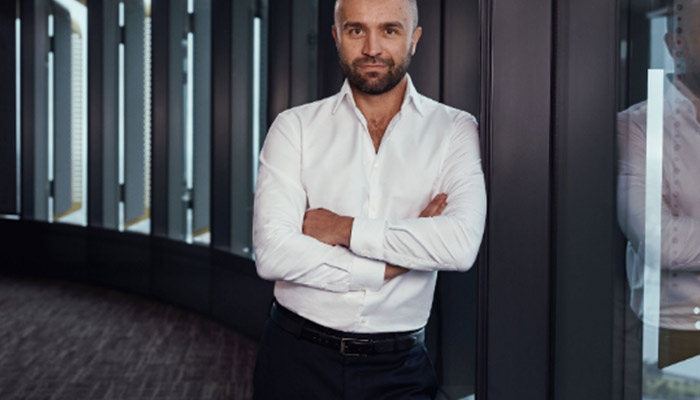Curveballs: 4 startup CEOs on investor questions that caught them off guard

(Pic: Getty Images)
For startups seeking early-stage capital, getting the investor pitch right can be critical.
And while preparation is important, there’s still no way of guaranteeing you’ll have answers to all the curly questions investors throw at you.
For starters, many investors have seen plenty of pitches before and have a good idea of what will make a good business. Putting founders on the spot can be a good way of establishing whether they’re on top of their business plan.
In view of that we’ve sought out some real-world experience for the latest instalment of Stockhead’s Private-i survey series — a periodic summary of insights from people who’ve ‘been there, done that’.
For this survey, Stockhead asked four co-founders for an example of how they got caught off-guard during the capital-raising process — and just as importantly, how they dealt with it.
Here’s what they had to say:
Dr Nancy Schellhorn, CEO and co-founder of RapidAIM
Question: “What’s your CAC?”
“Of course at the time I wasn’t familiar with the CAC acronym (Customer Acquisition Cost), and I honestly didn’t know the answer to the question,” Dr Schellhorn says.
“At that time, we were still trying to exit the CSIRO with an investor-friendly licence.”
“I overcame the situation by asking the VC partner to explain what CAC stands for – then answered by providing two options for how we would acquire the customers. ”
“I asked the partner to give me one week to come back with cost ranges for the two options. This was a fantastic question and one that I needed to know the answer to.”

Adrian Przelozny, CEO and founder of Independent Reserve
Question: “What is the potential size of the market in 4 to 5 years?”
“Although this question didn’t catch us off guard, it was a hard one to answer,” Przelozny says.
“With cryptocurrency still in its infancy in 2013, we overcame the situation in two ways. Firstly, by believing in our team and the cryptocurrency industry. If you don’t believe in the people around you or your industry, there’s no point in starting.”
“Secondly, we focused our efforts on investors who understood the significance and potential of Bitcoin, or at the very least had an open mind to it.”

Dr Silvia Pfeiffer, CEO at Coviu
Question: “What is your exit strategy?”
“When you start off building something new, your imagination takes you to the kind of things you want to create and the first steps to take to get there,” Dr Pfeiffer says.
“If you’re then asked to consider how your new business might end, that severely limits what you’re able to achieve and leads to short-term thinking; it creates a focus on how to make this business valuable for an M&A.”
“Founders of truly transformative companies don’t think that way – Steve Jobs, Mark Zuckerberg and Elon Musk never thought about an exit for their company when they started.”
“Their focus was always on a big vision, a transformation of the way we do things, and they focused on a path that would create the biggest opportunities. This is why I flinch when I get this question.”
“Tim Cook even suggested that if an investor asks the “exist strategy” question during a pitch, the founder should walk out. I wouldn’t go that far – I understand what the point of the question is: to find out what you are committed to achieving for the company and therefore for the investor.”
“However, this is a closing-down question, when really you want to open up the possibilities. I would therefore recommend a better question to ask: “If your company was as successful as you dream it to be, what would it look like?”. I think this question opens up a more positive and constructive dialogue.”

Marcus Ehrlich, Managing Director and founder at Ninox Robotics
Question: “What fundamental matters related to the business will require board approval?”
I wouldn’t say that this caught me off guard, per se, but I didn’t have a firm grasp as to the specifics of what would or should constitute “fundamental matters” under the control of the board – that is, what actions or decisions of the company would need board approval,” Marcus Ehlich says.
“Prior to the raise, I had been operating with complete managerial autonomy, so the concept of having to give up some of this autonomy required a shift in mindset.”
“I also had to place a real focus on what decisions should be controlled by the company’s board — taking into account what constitutes good corporate governance and investor rights.”
“As I became familiar with the concept and what items would constitute fundamental matters, I came to rapidly view this process as a positive. The addition of board oversight on key matters would add additional rigour to important future decision making.”
“Fortunately, both Ninox and the investors where very cooperative in this process and it became quite obvious fairly quickly what sort of decisions should be left to management and what would be reserved for board consideration.”

UNLOCK INSIGHTS
Discover the untold stories of emerging ASX stocks.
Daily news and expert analysis, it's free to subscribe.
By proceeding, you confirm you understand that we handle personal information in accordance with our Privacy Policy.








